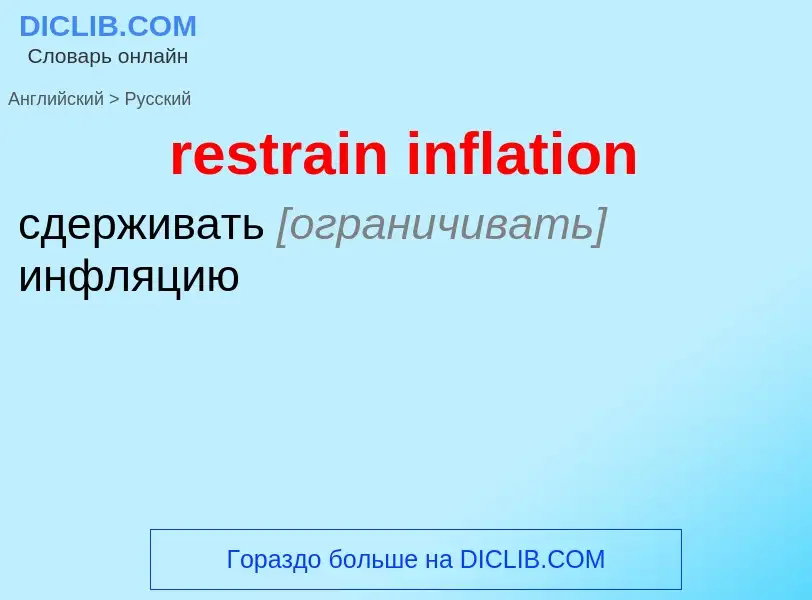Tradução e análise de palavras por inteligência artificial ChatGPT
Nesta página você pode obter uma análise detalhada de uma palavra ou frase, produzida usando a melhor tecnologia de inteligência artificial até o momento:
- como a palavra é usada
- frequência de uso
- é usado com mais frequência na fala oral ou escrita
- opções de tradução de palavras
- exemplos de uso (várias frases com tradução)
- etimologia
restrain inflation - tradução para russo
Definição
Wikipédia
Monetary inflation is a sustained increase in the money supply of a country (or currency area). Depending on many factors, especially public expectations, the fundamental state and development of the economy, and the transmission mechanism, it is likely to result in price inflation, which is usually just called "inflation", which is a rise in the general level of prices of goods and services.
There is general agreement among economists that there is a causal relationship between monetary inflation and price inflation. But there is neither a common view about the exact theoretical mechanisms and relationships, nor about how to accurately measure it. This relationship is also constantly changing, within a larger complex economic system. So there is a great deal of debate on the issues involved, such as how to measure the monetary base and price inflation, how to measure the effect of public expectations, how to judge the effect of financial innovations on the transmission mechanisms, and how much factors like the velocity of money affect the relationship. Thus, there are different views on what could be the best targets and tools in monetary policy.
However, there is a general consensus on the importance and responsibility of central banks and monetary authorities in setting public expectations of price inflation and in trying to control it.
- Keynesian economists believe the central bank can sufficiently assess the detailed economic variables and circumstances in real time to adjust monetary policy in order to stabilize gross domestic product. These economists favor monetary policies that attempt to even out the ups and downs of business cycles and economic shocks in a precise fashion.
- Followers of the monetarist school think that Keynesian style monetary policies produce many overshooting, time-lag errors and other unwanted effects, usually making things even worse. They doubt the central bank's capacity to analyse economic problems in real time and its ability to influence the economy with correct timing and the right monetary policy measures. So monetarists advocate a less intrusive and less complex monetary policy, specifically a constant growth rate of the money supply.
- Some followers of Austrian School economics see monetary inflation as "inflation" and advocate either the return to free markets in money, called free banking, or a 100% gold standard and the abolition of central banks to control this problem.
Currently, most central banks follow a monetarist or Keynesian approach, or more often a mix of both. There is a trend of central banks towards the use of inflation targeting.

